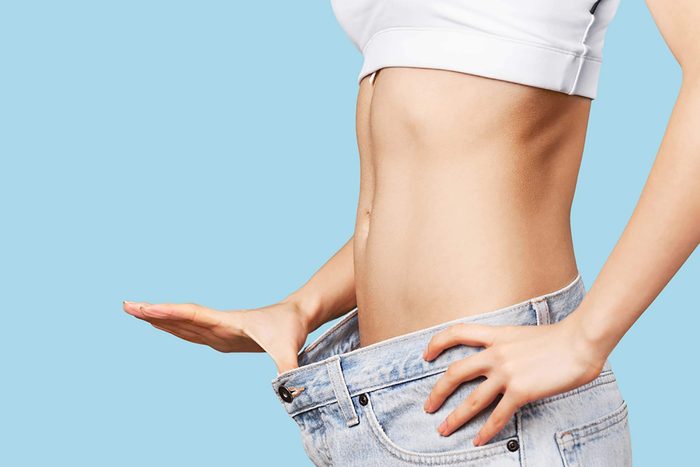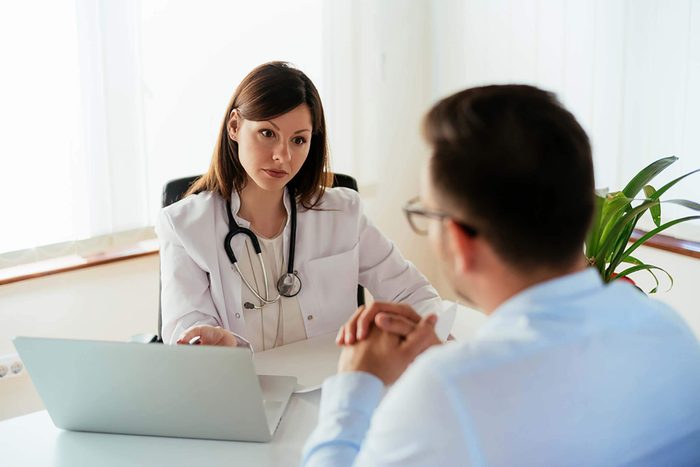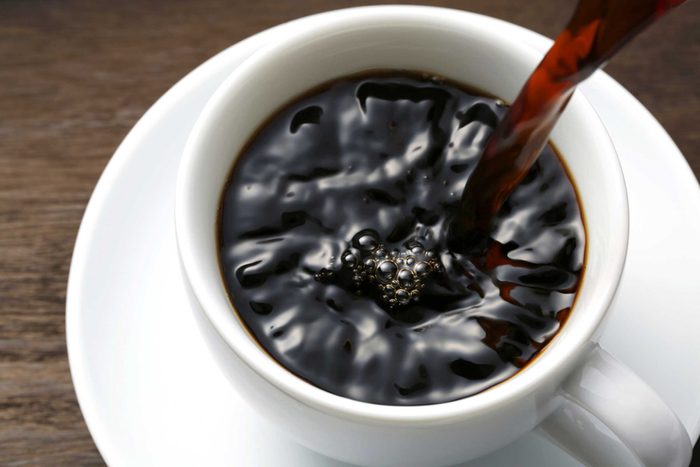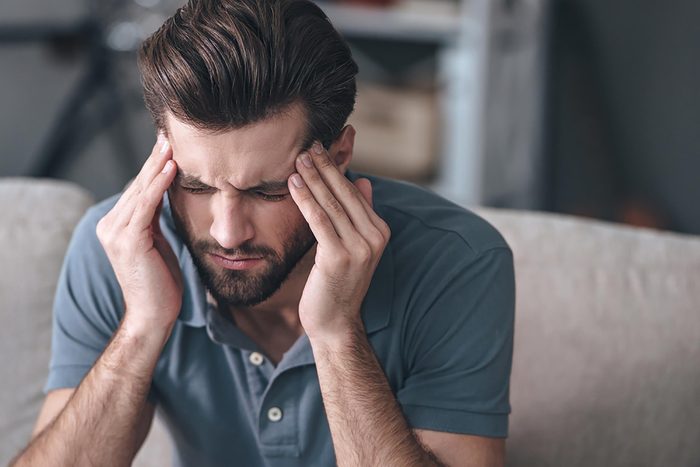Coffee health myths
Enjoying a cup of coffee in the morning or afternoon is a ritual many people look forward to. But some of the news and myths about coffee and your health might make you think twice about a second cup. We spoke with registered dietitians and nutrition experts to answer all the most common questions you might have about the risks and potential health benefits of coffee. Read on to learn more about coffee while sipping on your cup of Joe.

Will I get dehydrated from drinking coffee?
This is the biggest coffee myth, experts agree. When British researchers studied the body fluid levels of 50 men, they were the same whether the men drank coffee or water for hydration. “We tell people to drink eight 8-oz cups of fluid per day, and we always thought you couldn’t include coffee,” says registered dietitian Halle Saperstein, of Henry Ford West Bloomfield Hospital in Michigan. “But now studies show otherwise. It’s OK to count coffee as part of your fluid intake.” Watching for the signs of dehydration is a much better indicator than cutting out coffee altogether.
So why the myth? “Caffeine is a natural diuretic, but the amount that you urinate is not as significant as we once believed,” says Saperstein. Still, since too much caffeinated coffee can make you jittery, water is probably the best form of hydration. Drink coffee in the morning, and use plain H20 for fluid intake the rest of the day. Here are some more ways to make your coffee habit healthier.

Will coffee help me lose weight?
Caffeine, a stimulant, is often used in weight-loss pills, and a cup of coffee may result in a short-term rise in your metabolic rate. Still, there’s no proof that coffee can help you lose weight, says Saperstein. Plus, people tend to drink coffee with calorie-packed creams and sugars. Saperstein’s suggestion: Use skim milk, drink plain coffee instead of lattes (so you drink more coffee than milk), and limit the amount of sugar you use. Try this healthy homemade creamer recipe you won’t feel guilty about.

Is coffee connected to cancer?
When cancer patients visit registered dietitian Lindsay Malone, they often tell her they’ve cut out coffee because they assume it’s unhealthy. Coffee, however, is on the list of cancer-fighting foods published by the American Institute for Cancer Research because of its high antioxidant content. “Cancer starts with DNA damage,” says Malone. “The antioxidants in coffee protect your cells and keep them healthy. If you have any DNA damage from, say, secondhand smoke or environmental pollutants, antioxidants can help repair cell damage.” Various studies have linked coffee to a decreased risk of liver, breast, prostate, and melanoma skin cancers, among others. Learn more about the health benefits of drinking black coffee.

Is coffee bad for my heart?
For most healthy people, caffeine can cause a short, temporary increase in blood pressure, but it isn’t harmful in the long run. In fact, it’s even one of the best foods to eat to prevent clogged arteries. “Avid coffee drinkers can build up a tolerance to the caffeine and may not experience such effects after a cup,” says registered dietitian Leigh Tracy, of Mercy Medical Center. People with high blood pressure, however, should talk to a doctor to see whether they should limit caffeine. “Those with high blood pressure should pay particular attention to how they feel when they drink coffee,” says registered dietitian Jennifer Powell Bolton, RDN, a professor of nutrition at Metropolitan State University of Denver. “They may find that their heart rate gets faster or notice palpitations.” Don’t miss everything you should know about coffee and high blood pressure.

Does coffee raise cholesterol levels?
Altering cholesterol is just one of the ways your daily cup of coffee affects your body. Cafestol, a compound in coffee, is a potential stimulator of increased LDL cholesterol, which isn’t the good kind. “The catch is, it’s found in the oily portion of coffee,” says Weddig. “If you use a paper filter to make your coffee instead of something like a French Press, you lose that component.” Mesh filters, like those in a French press, will not eliminate the cafestol. However, if you don’t already have elevated LDL cholesterol, you likely don’t need to be concerned, says Weddig. (Espresso vs. coffee: what’s the difference?)

Will coffee cure a hangover?
If you’re groggy after an eventful night—and don’t feel adventurous enough to try these potential hangover cures from around the world—coffee might help. “If you didn’t get high-quality sleep, which contributes to a hangover, coffee will stimulate the central nervous system and improve focus,” says Malone. It doesn’t, however, clear out the alcohol in your system, so skip the end-of-the-night cup of coffee. It won’t help you sober up. This protein-rich coffee smoothie might make the morning after a little less painful though.

Does coffee stunt growth?
Your mother may have told you coffee can stunt your growth if you asked for a sip—and yes, parents, it’s probably best if teens avoid coffee until age 18—but there’s no truth to the idea that coffee or caffeine stunt growth, says Malone. “There is some research that caffeine can leach calcium from the bones, but older adults seem to be more susceptible to that than younger populations,” she says. The amount is so small, however, that slightly increasing milk intake can make up for the loss in calcium. The calcium-leaching effect of one cup of coffee can be balanced with two tablespoons of milk. In the event that it somehow does impact your height, remember that short people get health perks that tall people don’t.
